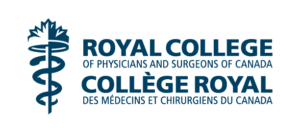Canadian Patient Safety Program
The Canadian Patient Safety Program, an exclusive CHA Learning program, was developed after extensive national stakeholder consultation and in partnership with subject matter experts and patient family partners across Canada.
This new program replaces the now-retired Canadian Patient Safety Officer Course (CPSO) which was jointly developed and delivered with the Canadian Patient Safety Institute (now part of Healthcare Excellence Canada) and retired in spring 2022.
The Canadian Patient Safety Program is Canada’s only comprehensive, flexible online learning program for patient safety professionals.
This program equips aspiring, new and existing patient safety and quality specialists with the required knowledge and skills to improve safety for and with patients, families and staff and to enable safety culture change.
Supported by expert patient safety coaches from across Canada, learners will also benefit from regular opportunities for engagement, sharing and support amongst peers and faculty as well as case examples and practical activities throughout.
The program includes monthly virtual sessions, focused on patient safety topics that complement the curriculum and are facilitated by expert faculty and guests.
Why Take This Program?
• Comprehensive, specialized patient safety learning program
• Ideal for those leading patient safety work as well as clinicians, allied health professionals, educators, managers with a focus on patient safety and improvement
• Interactive e-learning format
• Applied activities and reflections throughout
• Enrol anytime, learn at your own pace
• Supported by dedicated and expert faculty coaches from across Canada
• Opportunities to interact online with peers and faculty
• Some courses available individually (see curriculum section below)
• Learners may be eligible for exemptions based on prior learning. Please contact us directly to inquire about prior learning assessment.
Note: Exemptions reduce coursework requirements but do not impact the tuition fee. Students with exemptions will still be provided access to all learning materials.
Faculty biographies can be found on our registration page.
- There are no prerequisites for this program, but a background in or active role in healthcare is recommended
- Approximately 120 hours
- Take up to 12 months to complete, at your own pace
- $2295 CAD
- $2495 International
Note: Alberta residents are eligible for a 10% tuition discount off the whole program as a result of our partnership with the Health Quality Council of Alberta. This discount will be automatically available during checkout.
There are seven courses in the program. It is recommended, but not mandatory, to take the courses in order. Each course has one graded assignment that is completed at the end of the content, as well as other ungraded activities and opportunities for reflection throughout.
The below outline is not exhaustive but an overview of main topics covered in each course.
Course 1: Foundations of Patient Safety
- Introduction to patient safety in Canada
- Brief history of patient safety
- Core terms, definitions and concepts
- Harm and safety events – how they occur
- Link between safety, quality and risk
- Complexity and complex adaptive systems
- Safety Competencies
- Safety Frameworks
- Accreditation and standards as levers for safety
- Regulatory and legislative contexts
- Current state of patient safety in Canada
- Current issues in patient safety in Canada
- Staff safety
- Patient family partnership
- Equity and cultural safety
- Organizational roles and responsibilities in patient safety
Course 2: Safety Culture and Organizational Enablers
- Patient safety culture and just culture
- Learning organizations
- Impact of culture on safety and safety outcomes
- Actions that promote patient safety culture
- Role of leaders and governors in safety culture
- Safety culture measurement and monitoring
- Enablers of patient safety culture
- Organizational resilience and reliability
- Change management and change leadership
- Staff Engagement
- Safety in organizational strategy
- Staff engagement and psychological safety
- Current issues and impacts on staff engagement and safety
Course 3: Partnering with Patients, Families
- Foundations of people-centred care
- Engagement and experience
- Impact of harm on experience and outcomes
- Importance of partnership in patient safety
- Patient and family/care partner as part of the safety team
- Benefits and impacts of partnership on safety and improvement
- Cultural safety and harm
- Equity in engagement
- Engagement frameworks, methods and approaches
- Experience-based co-design in safety improvement
Course 4: Teamwork and Communication
- Principles of effective teamwork and collaboration
- Characteristics and behaviours of effective teams
- Silo-based systems and impact on safety
- Patients and families as part of the team
- Teamwork in safety event prevention and improvement
- Learning from incidents as a team
- Developing trust as a team
- Impact of communication on safety
- Effective communication
- Communication models and tools in healthcare
- Team behaviours that negatively impact safety
- Having difficult conversations
Course 5: Human Factors in Healthcare Safety (also available individually)
- Human factors engineering and history in healthcare
- Human factors in safety incidents
- Cognitive bias and impacts on decision making
- Mitigation strategies for human error and cognitive bias
- Human factors evaluation methods
- Human factors design principles for safer systems
- Usability analysis
Course 6: Safety Incident Management (also available individually)
This course will comprehensively walk learners through a consistent methodology for reviewing, analyzing and learning from incidents in their organization, using a case-based approach to application.
- Anticipating, identifying, reducing and mitigating hazards and risks
- Accident theories and application to healthcare
- Classification of incidents
- Error attitudes
- Life cycle of a patient safety incident
- Safety culture in incident analysis
- Systems based approaches to incident analysis and management
- Immediate actions after an incident
- Disclosure
- Support for providers involved in incidents
- Legislative implications
- Incident analysis approaches and step-by-step process
- Tools and techniques for using data in analyzing incidents
- Learning from incidents
- Writing and presenting recommendations for safety improvement
Course 7: Safety Improvement Methods
- Introduction to healthcare quality and quality improvement
- Dimensions of quality
- Levels of quality (individual, process/team, organizational, system)
- Fundamentals of quality improvement (QI)
- QI methodologies
- Innovation in improvement
- Measuring and monitoring quality and safety
- QI Tools
- The Ottawa Hospital’s Health Quality Innovation Framework – in depth
- Defining the problem
- Analyzing the situation
- Testing and trialing improvement
- Locking in improvement
- Evaluation and spread
Canadian Patient Safety Program Quick FAQ
- What will I achieve at the completion of this program?
At the end of this program you will receive a certificate from CHA Learning.
- Do I need to have basic quality improvement knowledge to take this program?
No, however, it is recommended that learners have some foundational knowledge in order to be successful. If you do not have this foundation, you could consider our Foundations of Healthcare Quality course first. Some foundational knowledge will be refreshed at the beginning of the Patient Safety Improvement course.
- After I finish this program, can I use the title Patient Safety Officer?
At this time in Canada, there is no formal, professional designation for patient safety specialists, however, CHA Learning is considering the development of a professional certification in 2024-25).
Related Programs and Courses
Foundations of Healthcare Quality
Health Quality Innovation Program
People-Centred Care Leadership Program
Are you an employer looking to train a group?
Partner with us for your team’s professional development.
Why Choose CHA Learning
With over 70 years of history as a healthcare non-profit, online learning is all we do. Tens of thousands of professionals have graduated from our programs and gone on to positively impact the health system. Our healthcare experts and faculty coaches are industry leaders. Our team provides exceptional support and truly cares about your success. Learn more about us.
 CHA Learning Info To Go
CHA Learning Info To Go
Need information about our programs you can take anywhere?
Download our brochure.





 Health Information Management
Health Information Management